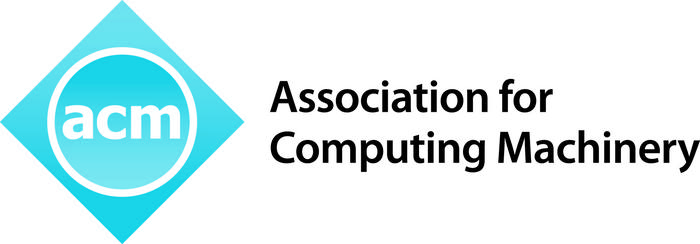ACM, the Association for Computing Machinery, has announced the publication of the first issue of the ACM Journal on Autonomous Transportation Systems (JATS), a new research publication covering the broad field of autonomous vehicles—from self-driving cars and trucks to aerial drones—as well as the social implications of these systems. In launching the new journal, the JATS editorial team recognizes that the area of autonomous transportation systems is at a critical point where issues related to data, models, computation, and scale are increasingly important.

Credit: Association for Computing Machinery
ACM, the Association for Computing Machinery, has announced the publication of the first issue of the ACM Journal on Autonomous Transportation Systems (JATS), a new research publication covering the broad field of autonomous vehicles—from self-driving cars and trucks to aerial drones—as well as the social implications of these systems. In launching the new journal, the JATS editorial team recognizes that the area of autonomous transportation systems is at a critical point where issues related to data, models, computation, and scale are increasingly important.
The promise of autonomous vehicle technology, in which people or goods could be transported without the need of a human driver, has been one of the most discussed and anticipated areas in tech today. While the autonomous vehicle industry is decades old and billions of dollars have been invested in research and development, the ultimate goal of fully self-driving cars has yet to be realized. Presently, the auto industry has introduced “Level 2” automated vehicles. With “Level 2” systems, a driver can temporarily take their hands off the steering wheel; however, the responsibility for everything the vehicle does still remains solely with the driver. At the same time, a select number of research labs around the world contend they have developed “Level 5” (fully driverless) vehicles. These vehicles are still in the research and development stage, and it is unclear when they will be available to the public.
The Co-Editors-in-Chief of JATS are Satish V. Ukkusuri, Reilly Professor of Civil Engineering, Purdue University and Vaneet Aggarwal, Professor of Industrial Engineering, Purdue University.
“An exciting new frontier of modern mobility is opening up before us,” explained Co-EiC Satish Ukkusuri. “Recent advances in technologies such as artificial intelligence, machine learning, and sensor fusion have led to exciting advances on the road to navigating vehicles without human drivers. At the same time, the field is still confronting critical challenges. We envision JATS as a venue where researchers from around the world can share the most important new developments in the field, with the ultimate goal of overcoming longstanding challenges.”
In their introductory editorial for the inaugural issue, the editors note that autonomous transportation systems are poised to positively shape the future, promising safer, more efficient, and environmentally friendly modes of travel. The editors also note that autonomous vehicles can “potentially revolutionize various industries including personal commuting, logistics, public transit, parking, and city design.”
“JATS has also been planned to reflect the multidisciplinary nature of this field,” added Co-EiC Vaneet Aggarwal. “We will present the best research from all disciplines that contribute to this technology, including algorithms, computational solutions, and frameworks that will advance the AV research domain—as well as transportation engineering and public policy. The inaugural issue reflects this vision and presents articles on a broad range of topics—from truck platoons to the impact of autonomous vehicles on societal digital disparities, and finally, approaches for selecting safe lane-changing trajectories. Numerous articles have already been accepted for future issues. It is truly exciting to witness the growing momentum within the research field of Autonomous Transportation Systems. JATS will be at the forefront of this movement.”
Articles in the inaugural issues include:
“Theoretical Development and Numerical Validation of an Asymmetric Linear Bilateral Control Model- Case Study for an Automated Truck Platoon” by M Sabbir Salek, Mashrur Chowdhury, Mizanur Rahman, Kakan Dey, and Md Rafiul Islam
“Car-Following-Response-Based Vehicle Classification via Deep Learning,” by Tianyi Li and Raphael Stern
“Autonomous Vehicles for All?,” by Sakib Mahmud Khan, M Sabbir Salek, Vareva Harris, Gurcan Comert, Eric A. Morris, and Mashur Chowdhury
“Dynamic Planning of Optimally Safe Lane-change Trajectory for Autonomous Driving on Multi-lane Highways Using a Fuzzy Logic–based Collision Estimator,” by Omveer Sharma, N.C. Sahoo, and Niladri B. Puhan
In addition to the EiC’s, the JATS Editorial Board includes Associate Editors Alexandre Alahi, Ecole Polytechnique Fédérale de Lausanne; Saurabh Amin, MIT; Samarjit Chakraborty, University of North Carolina-Chapel Hill; Mashrur Chowdhury, Clemson University; Christian Claudel, University of Texas at Austin; Kikuo Fujimura, Honda Research Institute; Carlee Joe-Wong, Carnegie Mellon University; Hoong Chuin Lau, Singapore Management University; Dongfang Liu, Rochester Institute of Technology; Zongqing Lu; Peking University; Tony Qin, Lyft Rideshare; Hai Vu, Monash University; Shanhhang Zhang, Peking University; and Feng Zhu, Nanyang Technological University. In keeping with its international scope, the JATS editorial board members hail from countries including Australia, China, Japan, Singapore, Switzerland, and the United States.
ACM publishes more than 70 scholarly peer-reviewed journals in dozens of computing and information technology disciplines. Available online through the ACM Digital Library, ACM’s high-impact journals constitute a vast and comprehensive archive of computing innovation, covering emerging and established computing research for both practical and theoretical applications.
About ACM
ACM, the Association for Computing Machinery is the world’s largest educational and scientific computing society, uniting computing educators, researchers, and professionals to inspire dialogue, share resources, and address the field’s challenges. ACM strengthens the computing profession’s collective voice through strong leadership, promotion of the highest standards, and recognition of technical excellence. ACM supports the professional growth of its members by providing opportunities for life-long learning, career development, and professional networking.
###



